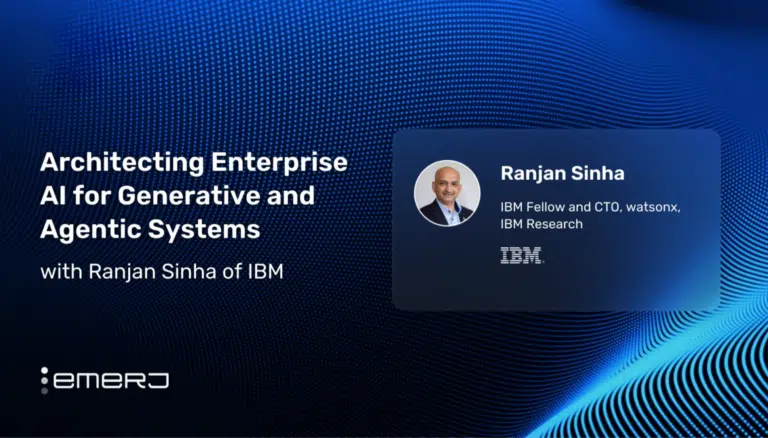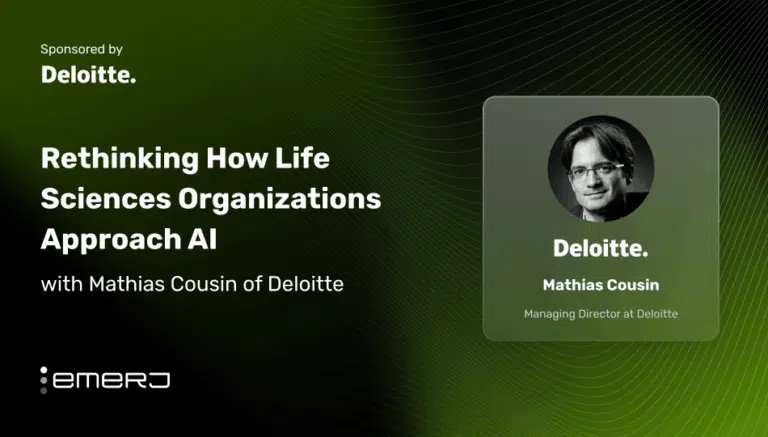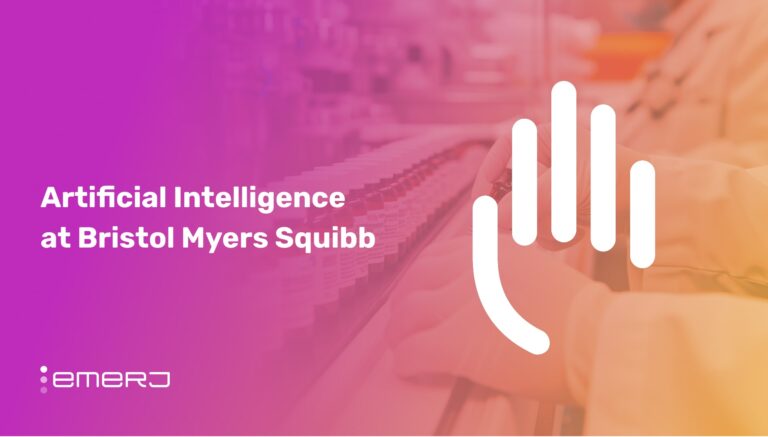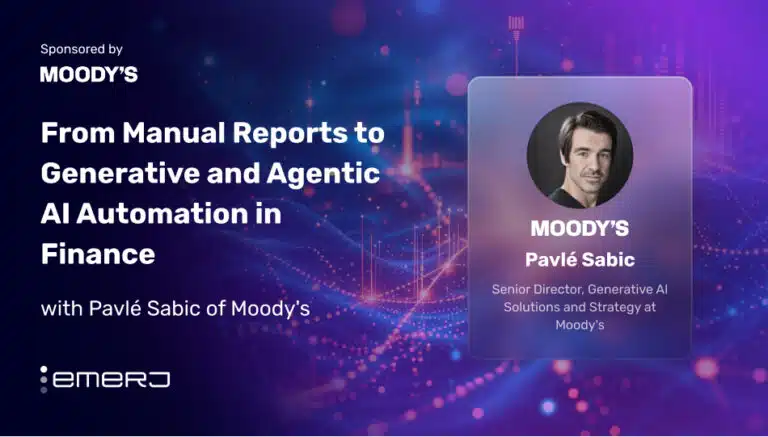This interview analysis is sponsored by Arkestro and was written, edited, and published in alignment with our Emerj sponsored content guidelines. Learn more about our thought leadership and content creation services on our Emerj Media Services page.
By 2024, the use of data, automation, and AI is hardly new to global supply chains, especially in the food and beverage space. In 2023, Harvard Business Review profiled how Walmart, Tyson Foods, Koch Industries, Siemens, and Unilever are using advanced AI technologies to plan for and adapt to supply-chain disruptions, like finding alternative supply sources on short notice, reducing time to onboard new suppliers, and automating negotiations.
MIT Management Sloan School, in an article “How artificial intelligence is transforming logistics“, explains how AI models can illuminate previously invisible problems, such as vehicle capacities, and when trained continuously, the models can learn better routing policies automatically. If a policy shifts, for example, the model will pick up on it, eliminating the need for specialty algorithms.
Emerj Senior Editor Matthew DeMello recently sat down with Hal Gerson, Vice President of Global Procurement at Fresh Del Monte, and Edmund Zagorin, Founder and Chief Strategy Officer at Arkestro, to discuss how AI and data analytics are revolutionizing procurement and supply chain management by enabling personalized strategies that enhance efficiency and improve decision-making.
Fresh Del Monte is a global producer, distributor, and marketer of fresh and fresh-cut fruits and vegetables. It has a diverse portfolio, including juices, snacks, beverages, and Canned Fruits and Vegetables. Arkestro, on the other hand, is a Predictive Procurement Orchestration platform that leverages machine learning and data science to optimize procurement processes.
The following analysis examines two critical insights from their conversation:
- Analytics-driven purchasing: Leveraging data analytics to personalize procurement strategies by analyzing location-specific data, leading to more informed purchasing decisions and improved supply chain management.
- Integrating risk management in AI models for supply chain resilience: Ensuring supply chain resilience by incorporating risk management into AI models and establishing secondary and tertiary supplier options to mitigate disruptions caused by unpredictable events.
Guest: Hal Gerson, Vice President of Global Procurement, Fresh Del Monte
Expertise: Contract Negotiations, Category Development, Project management
Brief Recognition: Hal Gerson is the Vice President of Global Procurement at Fresh Del Monte. He is an experienced leader and has experience analyzing commodities and supply chain mechanics, developing pricing formulations, and strengthening supplier relationships. With more than two decades of experience in the food industry, he has worked with big organizations such as Burger King / RSI, Subway / IPC, Performance Foods Group (PFG), and Bang Energy.
Guest: Edmund Zagorin, Founder & Chief Strategy Officer, Arkestro
Expertise: Entrepreneurship, Research, Artificial Intelligence
Brief Recognition: Edmund Zagorin is the Founder & Chief Strategy Officer at Arkestro. With a background in network analysis and auction theory, Edmund is a thought leader on the emerging role of AI/ML in procurement and supply chains. Prior to founding Arkestro, Edmund worked as a consultant focused on data-driven supplier negotiations for large healthcare providers, contract manufacturers, and multi-campus retail brands.
Analytics-Driven Purchasing
Edmund opens the conversation by discussing how AI and data analytics are transforming supply chains, particularly in procurement and demand forecasting. He starts by explaining the importance of turning demand forecasts into operational cycles, such as monthly or weekly plans. He gives the example of a trade contractor that installs electrical units and purchases large quantities of copper wire.
The price of copper wire varies across U.S. states, and companies can save costs by optimizing their purchases based on location and shipping costs. It illustrates the value of personalizing procurement strategies using location-specific data.
A key point Edmund makes is that traditional statistical methods often oversimplify data by averaging it across regions, which fails to capture the nuances of real-world complexities. AI, on the other hand, enables companies to personalize data analysis, accounting for regional differences and specific characteristics, like seasonality or local holidays.
A more personalized approach allows businesses to make more informed decisions, leading to more efficient procurement and supply chain management.
In response, Hal explains the critical considerations for managing supply chains effectively, with a focus on balancing supply and demand, cost control, and continuous improvement. He begins by emphasizing the importance of ensuring an uninterrupted supply of products. The first priority is securing the necessary volume of goods and having a clear understanding of demand forecasts.
Once forecasting is achieved, the next goal is to negotiate the most competitive pricing. The challenge therein lies in the fact that while securing products is crucial, staying competitive on pricing is equally important.
In response, Hal highlights the delicate balance between having too much inventory and not enough. Carrying excess inventory can lead to additional storage costs, while insufficient stock might force a company to pay premiums to rush orders. To manage the problem, he stresses the importance of accurate forecasting, which helps companies be more strategic with their timing and inventory management.
Hal suggests that procurement is becoming more transactional and less relationship-based due to advances in AI and better data accessibility. He explains that, traditionally, long-term relationships with suppliers influenced purchasing decisions. Yet, as data becomes more available, companies can explore suppliers from new regions, such as buying bags from Malaysia, instead of relying on a familiar local supplier.
Integrating Risk Management in AI Models for Supply Chain Resilience
Hal also points out that while transactional models offer advantages, they may overlook important risks. For example, the experience and reliability that come with long-term supplier relationships can help navigate unexpected disruptions, such as shortages caused by unpredictable events like weather impacts on production.
In turn, Edmund emphasizes the need to incorporate risk management into AI models to ensure continuous supply and address potential interruptions:
“What has definitely changed is the increasing accountability for maintaining a resilient supply chain, including having secondary and tertiary options, which has become much more, at least, part of the cultures that are changing as we see them. In the past, a company might have relied heavily on a single trusted supplier that could deliver despite challenges. However, as supply chains become more transactional, companies are now expected to ensure redundancies and fallback options are in place in case of disruption. This shift became evident during geopolitical events like the Ukraine conflict and the Israel-Hamas crisis, where companies affected by sanctions or the conflicts were forced to seek alternative supply sources.”
– Edmund Zagorin, Founder & Chief Strategy Officer at Arkestro
Edmund goes on to argue that AI can enhance supplier relationships rather than compromise them. He believes that AI allows for more detailed insights by providing essential data—such as what was purchased, how it was shipped, and on-time delivery metrics (OTIF)—at the buyer’s fingertips. This ease of access can lead to more productive conversations with suppliers.
Edmund suggests that AI can offer a “both-and” solution where relationships and data-driven decision-making coexist. He also critiques the common approach of applying AI to manage “long tail” suppliers—those with infrequent orders. He warns against this, as these suppliers often handle crucial items that, while not frequently ordered, can be vital to production.
Automating communications with them might harm the relationship, especially if their importance is overlooked.
He continues by referencing the Kraljic Matrix, a tool for segmenting suppliers based on their strategic importance to the business. Some companies are using this matrix to guide their digital strategies, determining which parts of their supply chain will benefit from technological interventions.
He also argues that incorporating technology, such as AI, in strategic supplier relationships isn’t a trade-off but rather a tool for improving efficiency. For example, companies already use AI in daily activities like booking flights, hotels, or hailing rides, and he humorously notes that people may even be using AI for tasks like creating PowerPoint presentations.
Concluding his point, Edmund emphasizes that AI can streamline procurement tasks by pulling relevant data for meetings, making processes more efficient, and ultimately supporting both operational and strategic activities.
Arkestro invites procurement leaders and executives to join an exclusive virtual event hosted by former GE CEO Jeffrey Immelt on December 12 dedicated to de-risking supply chains in 2025 and mitigating potential disruptions. In today’s landscape, procurement plays a pivotal role in achieving cost savings through strategic partnerships. Arkestro’s event focuses on identifying hidden vulnerabilities, enhancing supplier relationships, and safeguarding operations from costly surprises. Featured speakers include leaders from Valvoline and Li & Fung discussing predictive AI.
Take advantage of this opportunity to discuss balancing costs with performance and learn how procurement and supply chain teams are driving innovation and efficiency through proactive risk management and optimized supplier collaboration. Click here for more information and to reserve your spot today.



















